The third Peking University Dispute Resolution Research Tea Party
Date:2018-12-26
On the afternoon of November 30, 2018, the third Peking University Dispute Resolution Research Tea Party was successfully held in the B102 conference room of (Leo) Koguan Building. This tea party invited Tsinghua University teacher Ren Zhong as the keynote speaker. The theme is “Difficulties in the implementation of the civil procedure law teaching theory: the cause and the way out – centering on the execution of the joint property of the husband and wife”. The tea party also invited more than 20 young researchers from universities, courts and other units to participate in this discussion.
First of all, as the host of the tea party, Peking University Cao Zhixun gave a warm welcome to the guests attending the event and introduced the background and purpose of the tea party. He hoped to provide a good platform for exchanges and discussions, so as to deepen the cooperation together. Practice and understanding of issues related to theory, entities, and procedures promotes practice development and academic progress.
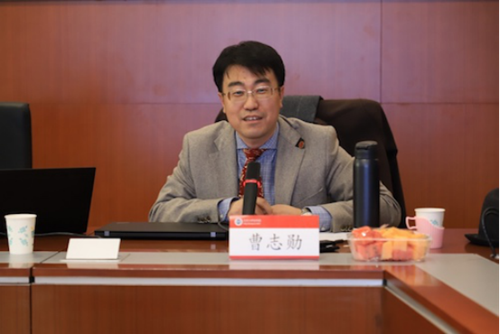
Then, Ren Zhong teacher took the execution of the joint property of the husband and wife as the entry point, and published a keynote report on the difficult implementation of the problem from the perspective of the teaching of civil procedure law. Mr. Ren’s report first defined the implementation of the civil procedural law from the perspective of the doctrine of the procedural law, that is, the executor has the ability or part of the ability to satisfy the claim in the effective judgment document, but cannot satisfy the applicant’s claim through enforcement. Situation. Mr. Ren believes that the application for behavior preservation is difficult, the property preservation is low, the trial procedure excessively emphasizes the tendency of one-time settlement of disputes, the high-level conditions for prosecution, the lack of free-hearted evidence, and the “non-litigation” represented by the security property realization procedures. "Orientation is the cause of the "difficulties in execution" of the civil procedure law. In this regard, the direction of reform should be to rationalize the relationship between the physical and the scope of the property under execution. The solution is to sue the creditor for the clear claim of the other party, supplemented by the presumption of movable property that is beneficial to the creditor. The common property management rules improve the efficiency of execution under the premise of fully guaranteeing the procedural rights of the other party, and comprehensively solve the "difficulties in execution" and "execution of chaos".
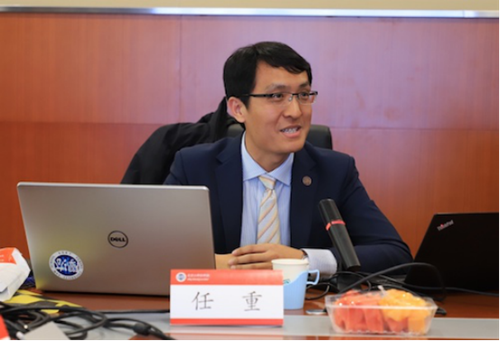
Next was the review and discussion stage of this tea party. Teacher Wang Yang from Tsinghua University believes that due to practical reasons, the joint property of husband and wife at the property level should not be shared by the civil law, but should be shared. Mr. Wang divides the debts of husband and wife into three categories, the most important one of which is concerned with how to implement the share of the parties in the joint property of the husband and wife, that is, how to divide the property in the case of no divorce. To meet the plaintiff’s request, it needs to be resolved in the Civil Procedure Law.
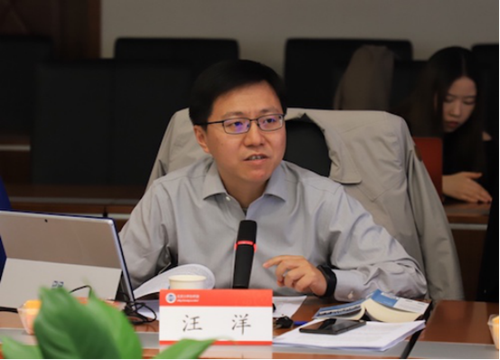
Jin Yin, a teacher at Renmin University of China, believes that “legal teaching and learning” is a systematic interpretation of the current law and jurisprudence. This concept is also used in the teacher’s report, but in some places there is still a situation where the conceptual level is not clear enough. For example, for the analysis of difficult problems in implementation, since it is an analysis of the level of legal teaching, then the discussion of the specific level of operation of the law is low, leading to inconsistencies in the meaning of the concept before and after.

Teacher Wang Xuemian from North China Electric Power University responded to Mr. Wang Yang’s implementation of the three classifications of husband and wife’s common debt. He believes that the personal debt problem of a spouse is actually a division of property involved in the implementation process. At this time, it is only necessary to file a lawsuit for the production of the spouse. This situation can lead to complex implementations, but does not lead to implementation difficulties. The second classification is the real problem of implementation, that is, the debt of the spouse is nominally, but it is actually the debt generated by the husband and wife living together. To solve this problem, it is necessary to provide a basis for the solid law to help solve the problem. Whether the eligible defendant indicted by the creditor is a question of the nominal debtor or both husband and wife. If it can be solved in the substantive law, so that both husband and wife are involved in the lawsuit, then there will not be too much difficulty in the lawsuit and execution.

From the two aspects of object and subject, the Chinese University of Political Science and Law Shi Mingzhou further distinguishes the difficulty of implementation and the complexity of execution through specific examples.
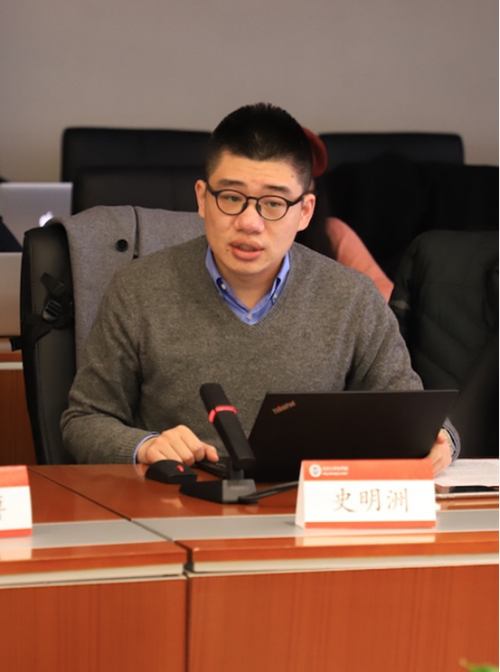
Tsinghua University’s PhD student, Lei Tong, separately distinguishes between the entity and the responsible property in execution, and the husband and wife evade execution in practice, and the jurisprudence proposes itself in the three different social backgrounds of Germany and China.
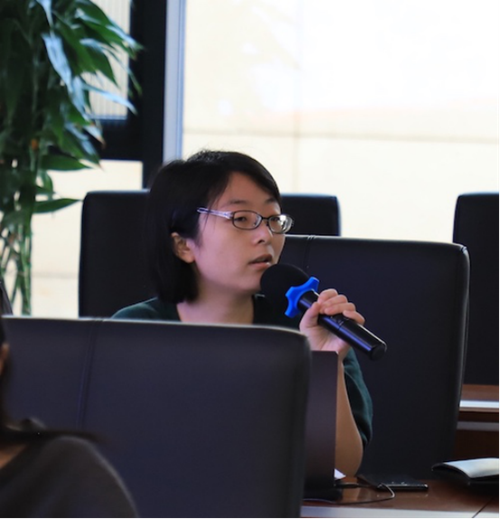
Tang Yong, a member of the Central University for Nationalities, combed the concept of common. First, the Roman law eliminates the common state as much as possible, because the common existence leads to uncertainty in the property. In Chinese law, the independent legal status of more and more types of civil subjects has been established, but the General Principles of Civil Law does not position husband and wife as civil subjects. It may be because of the transformation of social production methods. The community of life, so the future direction of its legal orientation is still non-civilian subjectivization. In addition, Mr. Tang Yong also sorted out the problems of the couple's relationship between German law and the law in terms of subject, property and credit. Among them, debt and common ownership are the most difficult to implement, so in German law, when the joint property of the husband and wife produces debt, both husband and wife should bear joint and several debts.
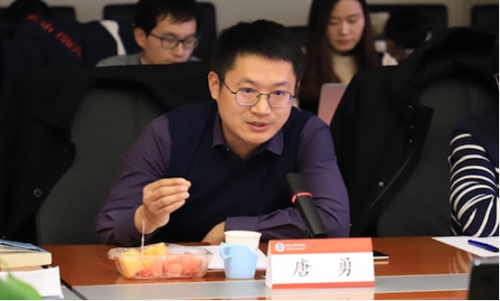
Mr. Feng Ke from Beijing University of Chemical Technology gave different opinions on the source of the execution of the husband and wife in the execution of the debts of the spouse. He also said that he should explore whether there is a civil procedure law that can be independent of other departmental laws, especially entities. Legal issues of law.
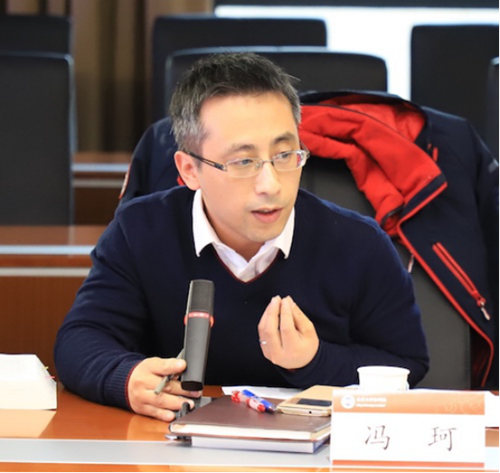
Teacher Wang Qing from Beijing Technology and Business University affirmed the significance of the research method of the civil law law teaching method to open the trial procedure and the execution procedure. Mr. Wang put forward some questions about the implementation of difficult research orientation. For example, how to distinguish between the practical level and the implementation of the doctrinal level, which are unique, the methods of the civil lawsuit, the one-time solution and the proof Whether it can be solved at the level of doctrinal science has caused everyone to think positively.

Peking University Press Li Duo believes that the analysis method of classifying the difficult phenomenon in the teacher's report is worth learning, and it is suggested to adjust the framework structure of the paper from its own specialty.
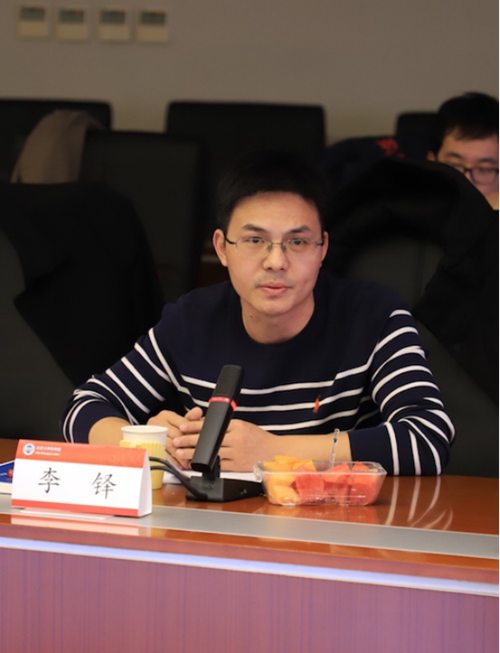
Teacher Cao Yunji from Tianjin University mentioned that the Japanese law relating to the comparative law in the report involves less provisions on the joint property of husband and wife and should be further supplemented. For the implementation of the joint property of the husband and wife, if there is not enough norm in the substantive law to solve, we should consider how to make up for this deficiency through the system construction in the procedural law.
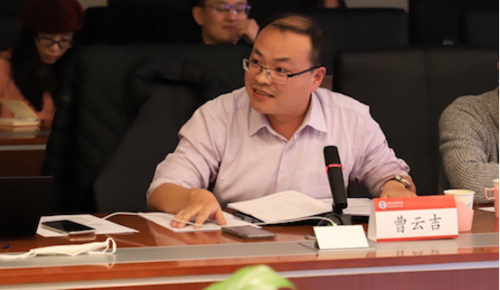
Teacher Chen Xiaotong from the University of International Business and Economics expressed his appreciation for the combination of macro and specific issues in the report. There are many problems in the process of identifying the common property of husband and wife. It is necessary to combine the debt law, property law and procedural law to solve it better.
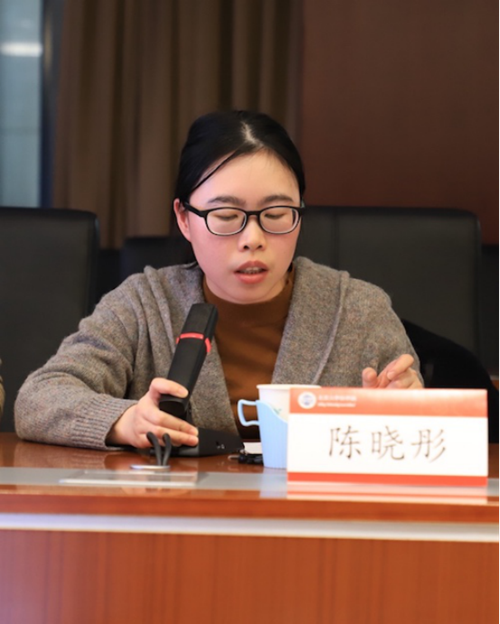
Mr. Yu Jianan from Peking University mainly analyzes the effect and purpose of the term “legal teaching and learning”. She believes that under the level of the legal community, how to integrate the implementation into the legal teaching and realize the internal consensus of the legal person is a A question worth exploring.
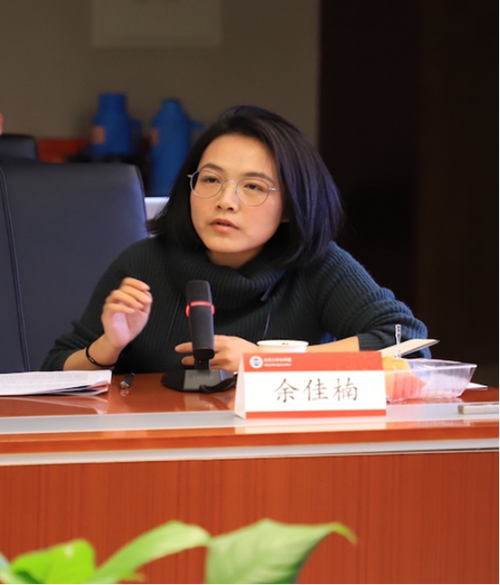
Teacher Liu Zhewei from Peking University carried forward the tradition of active discussion and bold questioning in the tea party, and put forward some opinions on the report of Ren. He believes that there is overlap in the classification of the teacher's report, and the subordinate concept cannot occupy the upper concept. He also questioned Mr. Ren's practice of using the term "legal teachings" as a very small number of search results, and felt that this method of research lacked appropriateness.
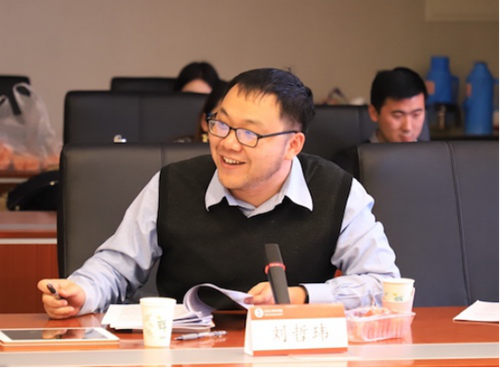
Mr. Li Xiaoxiao from Beijing Normal University put forward his own opinions on the stage of determining the type of debt in the report, the distinction between unilateral and joint management of property.
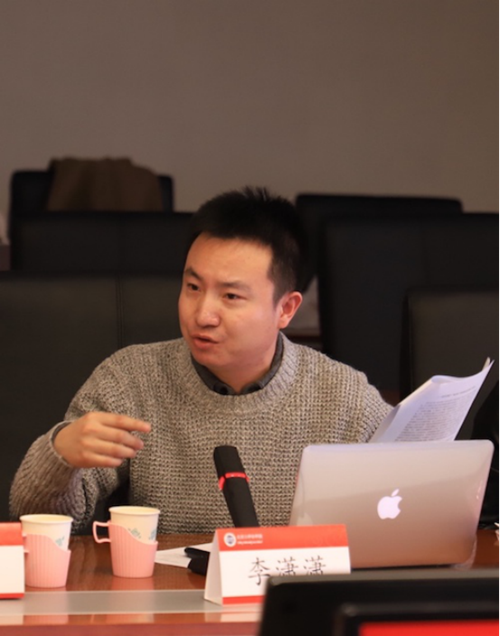
Teacher Xu Ke from the School of International Relations has proposed a solution to the issue of the foreign party’s debt in the name of the spouse and the creditor’s request for the settlement of the common property. Mr. Xu believes that he can learn from the provisions of Article 32 of the Tort Liability Law regarding the responsibility of guardians, and separate the establishment of creditor rights and the realization of creditor's rights at the level of legal regulation, thus forming a dual structure. The rules governing the establishment of claims should be governed by substantive law, and the rules governing the realization of claims (execution rules) should be governed by procedural law or enforcement law. On the premise of the above-mentioned dual structure, if the parties directly request the settlement of the common property at the time of prosecution, it is possible to include whether the contents of the common property settlement and the common property scope are included in the trial. In the first stage of the trial process of the establishment of a creditor's right, the other spouse does not have to be a co-defendant, but can participate in the litigation as a third person; in the second stage of the trial procedure for whether the joint property should be settled by the common property, it should be used as a common defendant. At this time, there is a conversion of the third-party litigation to the joint litigation in the trial structure, so that the execution name for the joint property of the husband and wife can be obtained.

Mr. Hu Sibo from China University of Political Science and Law believes that the current relationship between husband and wife in the society is diversified, complicated and false. The situation of divorce and divorce continues to live together. Therefore, we should pay attention to the above situation when studying implementation problems. Achieve effective classification.
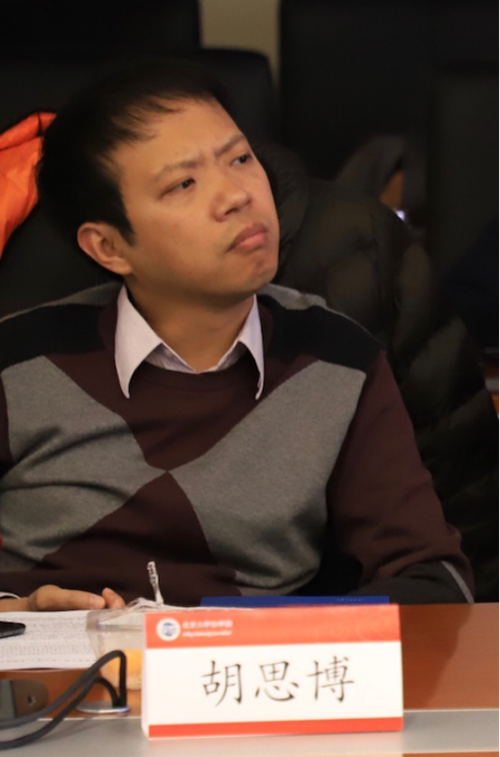
Teacher Ren Zhong responded to the comments of the teachers twice in the discussion at the tea party. Teacher Ren agreed with the ideas put forward by everyone and should define the implementation complexity and implementation difficulties. He believes that the more innovative part of his report lies in the emphasis on the implementation of the legal definition of law, which is the basis for discussing and solving difficult problems in implementation. In the analysis of the conclusions of the paper, Ren teacher believes that there is not much problem in the implementation of the joint and several debts in the substantive law; in the implementation of personal debt, there is a distinction between the enforcement of property in civil law and litigation, such as the inclusion of common property in civil law. The share of the husband and wife's common property, but the implementation can not provide a basis for the implementation of this share, this separation has led to difficulties in judgment. He believes that when he discusses it, he has to deal with issues other than legal doctrine, because otherwise it is impossible to explain the problem clearly. In the understanding of the implementation of the difficult teacher, the teacher said that the implementation of social understanding is difficult to include implementation, and the court does not include this understanding.
Lin Jianfeng, the teacher of the Central University of Finance and Economics, finally made a summary discussion. Teacher Lin believes that the current judicial practice has made a lot of efforts to solve the problem of difficult implementation beyond the legal level. It provides a good reference for how to completely solve the difficult problem of implementation from the perspective of legal norms. Teacher Lin concluded that there are mainly two disputes in the discussion of this tea party. On the one hand, on the other hand, in the framework of the thesis, the essence, core or connotation of the doctrine of civil procedure law is not clear enough, and the arguments of the second and third parts are somewhat out of touch. On the other hand, the controversy over the implementation of difficult research objects is also relatively large, especially the issue of the joint property of the husband and wife involves implementation difficulties, or the implementation of chaos, or the implementation is complex, need to be further clarified.
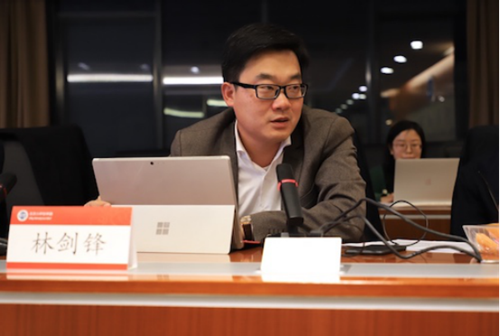
The discussion on the tea party was overwhelming. The guests and the teachers attended the implementation of the joint property of the husband and wife and discussed the difficult issues. In the taste of the fragrance, various academic views exchange and collide with each other, leading the discussion of the problem deeper.
Translated by: Nie Xudong
Edited by: Nie Xudong



